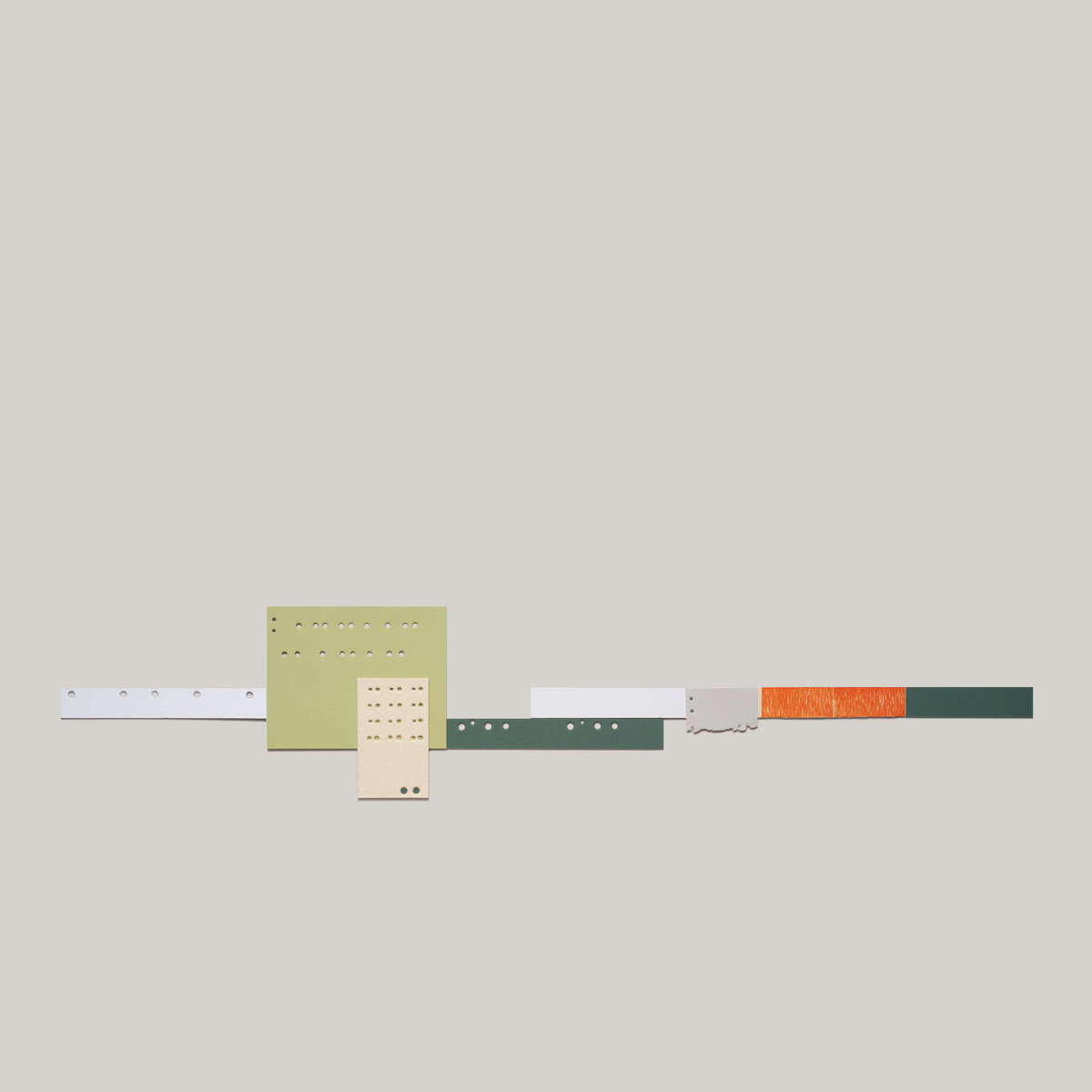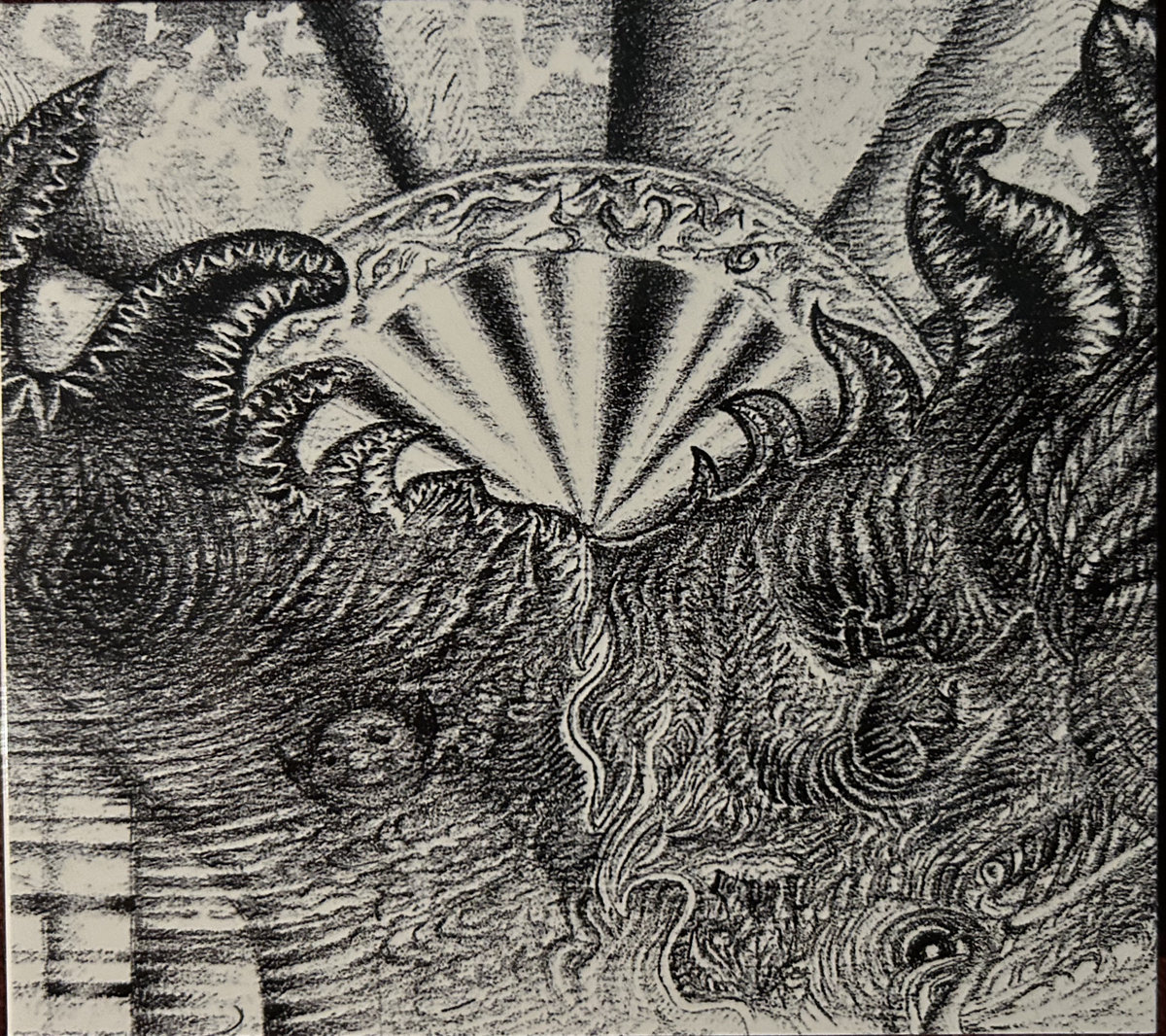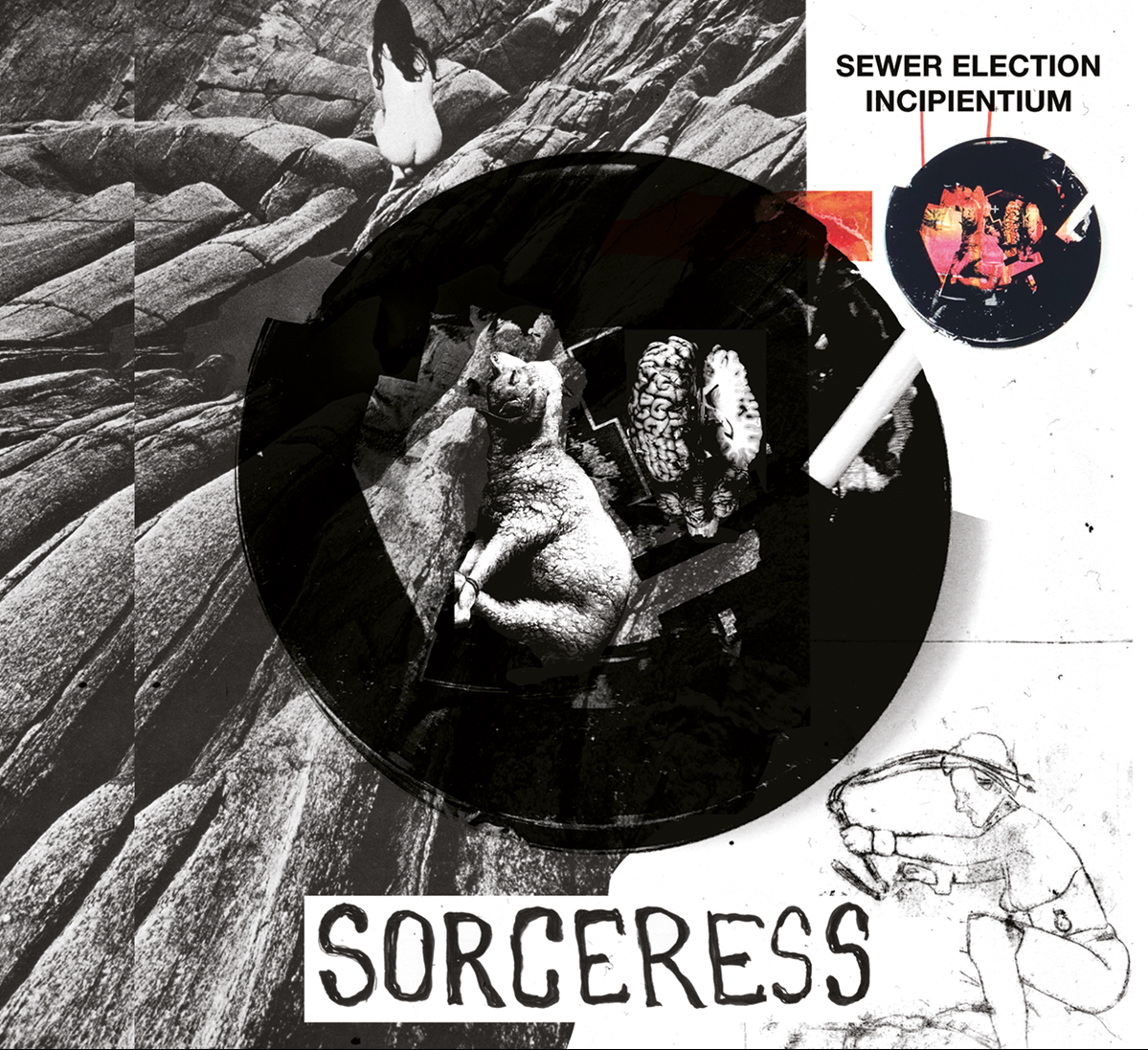 As far as I can tell, this is probably Diamanda Galás' tenth live album to date and it documents a pair of 2017 performances in Chicago and Seattle (Galás' previous live album, At Saint Thomas the Apostle Harlem, dates from the previous year). For the uninitiated, that probably sounds like an excessive number of live albums, but the improvisatory nature of Diamanda's art ensures that every single live performance is a truly singular event. Of course, actually experiencing Diamanda Galás live (an essential experience) is not quite the same as hearing a recording of the performance, much like watching a professionally shot video of a burning house is not quite the same as actually being inside one. That said, it is still a wild and compelling experience nonetheless and the lines between studio albums and live albums are increasingly academic given her volcanic spontaneity and preference for single-take recordings. The similarities to jazz do not end there, however, as Diamanda Galás in Concert is devoted to radical piano-and-voice interpretations of an eclectic and fascinating array of unconventional standards.
As far as I can tell, this is probably Diamanda Galás' tenth live album to date and it documents a pair of 2017 performances in Chicago and Seattle (Galás' previous live album, At Saint Thomas the Apostle Harlem, dates from the previous year). For the uninitiated, that probably sounds like an excessive number of live albums, but the improvisatory nature of Diamanda's art ensures that every single live performance is a truly singular event. Of course, actually experiencing Diamanda Galás live (an essential experience) is not quite the same as hearing a recording of the performance, much like watching a professionally shot video of a burning house is not quite the same as actually being inside one. That said, it is still a wild and compelling experience nonetheless and the lines between studio albums and live albums are increasingly academic given her volcanic spontaneity and preference for single-take recordings. The similarities to jazz do not end there, however, as Diamanda Galás in Concert is devoted to radical piano-and-voice interpretations of an eclectic and fascinating array of unconventional standards.
I recently saw someone suggest that Diamanda Galás "has felt the pain and suffering of the entire world her whole life" and it unexpectedly stuck with me. Regardless of whether that statement is actually true, it occurred to me that Galás is somewhat akin to cross between a sin-eater and The Picture of Dorian Gray, but instead of allowing guilty souls to finally rest in peace, she just screams humanity's ugly sins right back in our collective faces with harrowing intensity. The most obvious illustration of that dynamic is Diamanda's undiminished rage and sadness over the cruelty of how the world handled the AIDS epidemic, but she has plenty of similarly strong feelings about oppression and genocide too and that comes through even in her choice of cover songs (though "cover" is a hopelessly inadequate term for any song reshaped by Diamanda Galás). In keeping with that theme, she describes four of the songs included here as being "for and by the forsaken, outcast and debased," while the remaining three tackle yet another familiar theme: the dark side of love. That said, the stylistic breadth of her source material covers an impressively wide swath of both time and space, as she gamely finds and celebrates the connective tissue that runs through "rembetika, soul, ranchera, country and free jazz" (and even that is hardly a comprehensive list of all of the various cultural threads that Diamanda Galás In Concert touches upon).



 This latest album from Vicki Bennett, her first since 2018, is a characteristically dizzying and multilayered collage fantasia drawn from her currently touring AV performance "The Library of Babel." Fittingly, the album title has a dual meaning (either "abundance" or "copy"), but the deeper conceptual vein lies in the AV performance's title nod to a Jorge Luis Borges short story. In that story, "isolated librarians" struggle to "find meaningful texts amidst an overwhelming number of nonsensical or irrelevant books." Naturally, that nicely mirrors our own existential struggle to make sense of life while drowning in vast amounts of information, which Bennett colorfully portrays as "a journey through cinema and sound where the actors are set adrift from their story, left with pure experience." Fans of Bennett's previous work will find a lot of familiar samples, melodies, and themes set adrift from previous songs as well, as COPIA feels like a fever dream tour of the project's discography distilled into one memorably unhinged plunge down the psychedelic rabbit hole. Such self-cannibalism is very much in character for the project, of course, but a few of COPIA's fresh variations on a theme rank among Bennett's most mesmerizing work.
This latest album from Vicki Bennett, her first since 2018, is a characteristically dizzying and multilayered collage fantasia drawn from her currently touring AV performance "The Library of Babel." Fittingly, the album title has a dual meaning (either "abundance" or "copy"), but the deeper conceptual vein lies in the AV performance's title nod to a Jorge Luis Borges short story. In that story, "isolated librarians" struggle to "find meaningful texts amidst an overwhelming number of nonsensical or irrelevant books." Naturally, that nicely mirrors our own existential struggle to make sense of life while drowning in vast amounts of information, which Bennett colorfully portrays as "a journey through cinema and sound where the actors are set adrift from their story, left with pure experience." Fans of Bennett's previous work will find a lot of familiar samples, melodies, and themes set adrift from previous songs as well, as COPIA feels like a fever dream tour of the project's discography distilled into one memorably unhinged plunge down the psychedelic rabbit hole. Such self-cannibalism is very much in character for the project, of course, but a few of COPIA's fresh variations on a theme rank among Bennett's most mesmerizing work. I had a roommate back in the '90s who was deeply into the ambient side of techno, which was something that I intensely loathed at the time. Unbeknownst to me, however, that was my first exposure to the seemingly ubiquitous and eternal Taylor Deupree (via his Human Mesh Dance and Prototype 909 projects). I have since grown to genuinely love his work, of course, but I am sufficiently guilty of taking him for granted that I slept on his landmark 2002 album Stil. The same is not true of Joseph Branciforte (who runs the greyfade label), as he was so taken with the album that he embarked upon a multi-year project to "bring Deupree's explorations of extreme repetition and stillness into the world of notated chamber music." That initially seemed like quite a quixotic endeavor to me, but the resultant album is an absolute revelation, as breaking Deupree's elegantly skipping and sublime ambient magic up into individual acoustic components reveals an incredible degree of harmonic and dynamic sophistication that would have been otherwise lost on me. To paraphrase a scene from Mad Men, hearing Sti.ll after listening to Stil. feels like the moment in The Wizard of Oz when everything unexpectedly bursts into vivid color.
I had a roommate back in the '90s who was deeply into the ambient side of techno, which was something that I intensely loathed at the time. Unbeknownst to me, however, that was my first exposure to the seemingly ubiquitous and eternal Taylor Deupree (via his Human Mesh Dance and Prototype 909 projects). I have since grown to genuinely love his work, of course, but I am sufficiently guilty of taking him for granted that I slept on his landmark 2002 album Stil. The same is not true of Joseph Branciforte (who runs the greyfade label), as he was so taken with the album that he embarked upon a multi-year project to "bring Deupree's explorations of extreme repetition and stillness into the world of notated chamber music." That initially seemed like quite a quixotic endeavor to me, but the resultant album is an absolute revelation, as breaking Deupree's elegantly skipping and sublime ambient magic up into individual acoustic components reveals an incredible degree of harmonic and dynamic sophistication that would have been otherwise lost on me. To paraphrase a scene from Mad Men, hearing Sti.ll after listening to Stil. feels like the moment in The Wizard of Oz when everything unexpectedly bursts into vivid color. The enigmatic, inscrutable, and defunct Austrian duo of Jürgen Weber and Lili Novy/Frl. Tost has long been a subject of fascination for me, as I have had a bunch of their albums for years and enjoyed them, yet knew virtually nothing about them at all. In fact, I still would find it incredibly challenging to even answer a simple question like "what does Nový Svět sound like?" as their elusive discography continually blurs the lines between industrial, folk, cabaret, improv, collage, and whatever other esoteric influences they decided to assimilate for a given album. Amusingly, they also had a quixotic tendency to record albums in languages other than their native German, as evidenced by this newly released album from the vaults, which was originally intended to complete a "Spanish trilogy" back in 2007. In characteristically contrarian and mystifying fashion, it was shelved for being "too Spanish" and a synth album (Todas Las Últimas Cosas) was released instead. If this were any other band, I would drive myself crazy wondering why they would allow such an mesmerizing and wonderfully weird album to languish unheard, but baffling choices were basically the norm for Nový Svět. In any case, this album rules and I am thrilled to finally get to hear it.
The enigmatic, inscrutable, and defunct Austrian duo of Jürgen Weber and Lili Novy/Frl. Tost has long been a subject of fascination for me, as I have had a bunch of their albums for years and enjoyed them, yet knew virtually nothing about them at all. In fact, I still would find it incredibly challenging to even answer a simple question like "what does Nový Svět sound like?" as their elusive discography continually blurs the lines between industrial, folk, cabaret, improv, collage, and whatever other esoteric influences they decided to assimilate for a given album. Amusingly, they also had a quixotic tendency to record albums in languages other than their native German, as evidenced by this newly released album from the vaults, which was originally intended to complete a "Spanish trilogy" back in 2007. In characteristically contrarian and mystifying fashion, it was shelved for being "too Spanish" and a synth album (Todas Las Últimas Cosas) was released instead. If this were any other band, I would drive myself crazy wondering why they would allow such an mesmerizing and wonderfully weird album to languish unheard, but baffling choices were basically the norm for Nový Svět. In any case, this album rules and I am thrilled to finally get to hear it. First issued in 2013 as a limited-to-50 CDr, the, um, second album by the duo of Christoph Heemann and Will Long (Celer) was initially released in conjunction with a tour and has been only digitally available since. For its tenth anniversary, Black Rose Recordings have reissued this second (of three) recordings from the project on a wider available physical edition, ensuring that its lush, yet sparse collection of electronics are available once again for those longing for a tangible copy.
First issued in 2013 as a limited-to-50 CDr, the, um, second album by the duo of Christoph Heemann and Will Long (Celer) was initially released in conjunction with a tour and has been only digitally available since. For its tenth anniversary, Black Rose Recordings have reissued this second (of three) recordings from the project on a wider available physical edition, ensuring that its lush, yet sparse collection of electronics are available once again for those longing for a tangible copy. A pairing of two Swedish artists, the veteran Dan Johansson (Sewer Election) and the relative newcomer Gustav Danielsbacka (Incipientium), Sorceress makes for an unsettling collaboration at various points throughout its four compositions. With their heavy use of manipulated tapes, they add an uncomfortably organic sense to the sputtering electronics and junk noise that sound anything but human throughout. It may be unsettling, but it is also delightfully enchanting throughout.
A pairing of two Swedish artists, the veteran Dan Johansson (Sewer Election) and the relative newcomer Gustav Danielsbacka (Incipientium), Sorceress makes for an unsettling collaboration at various points throughout its four compositions. With their heavy use of manipulated tapes, they add an uncomfortably organic sense to the sputtering electronics and junk noise that sound anything but human throughout. It may be unsettling, but it is also delightfully enchanting throughout. This unusual drum and guitar duo first surfaced back in the dark days of early 2020 with The Quickening, which they boldly recorded without ever having previously performed together. Obviously, both artists are seasoned improvisers and excellent musicians, but I was still taken aback by the instant and incredible chemistry on pieces like that album's title track. Given the significant hurdles like distance, touring schedules, and other collaborations, it understandably took quite some time before the opportunity to reconvene presented itself, but the duo finally managed to meet up in White's native Australia in 2022 for some recording sessions in the coastal town of Point Lonsdale. The resultant album feels a bit different from its predecessor for a couple of reasons (no acoustic guitars this time around, "big change of vibe and scenery"), but the three-part "Bitterroot Valley Suite" beautifully recaptures the magic and spontaneity of the pair's debut while also breaking some very compelling new ground.
This unusual drum and guitar duo first surfaced back in the dark days of early 2020 with The Quickening, which they boldly recorded without ever having previously performed together. Obviously, both artists are seasoned improvisers and excellent musicians, but I was still taken aback by the instant and incredible chemistry on pieces like that album's title track. Given the significant hurdles like distance, touring schedules, and other collaborations, it understandably took quite some time before the opportunity to reconvene presented itself, but the duo finally managed to meet up in White's native Australia in 2022 for some recording sessions in the coastal town of Point Lonsdale. The resultant album feels a bit different from its predecessor for a couple of reasons (no acoustic guitars this time around, "big change of vibe and scenery"), but the three-part "Bitterroot Valley Suite" beautifully recaptures the magic and spontaneity of the pair's debut while also breaking some very compelling new ground. Despite her slim discography, Montreal-based Myriam Gendron has quietly amassed a very passionate following over the last few years, which is quite an impressive feat given that she frequently sings in French and the bulk of her previous oeuvre was devoted to interpretations of French/Québécois traditional music or Dorothy Parker poems. Obviously, such fare is quite far from the zeitgeist of the present time, but that is a big part of Gendron's allure: her work taps into a deeper and more timeless vein that captures the joy and pain of being alive in an unusually profound and direct way. Those same themes unsurprisingly remain central on Mayday (it was assembled in the wake of her mother's passing), but this third album is Gendron's first to focus primarily on her own original compositions as well as her first release to be professionally recorded in an actual studio. To celebrate that auspicious occasion, Gendron is joined by a host of talented collaborators like Dirty Three's Jim White, Body/Head's Bill Nace, and Marisa Anderson. Characteristically, the result is yet another absolutely mesmerizing Myriam Gendron album.
Despite her slim discography, Montreal-based Myriam Gendron has quietly amassed a very passionate following over the last few years, which is quite an impressive feat given that she frequently sings in French and the bulk of her previous oeuvre was devoted to interpretations of French/Québécois traditional music or Dorothy Parker poems. Obviously, such fare is quite far from the zeitgeist of the present time, but that is a big part of Gendron's allure: her work taps into a deeper and more timeless vein that captures the joy and pain of being alive in an unusually profound and direct way. Those same themes unsurprisingly remain central on Mayday (it was assembled in the wake of her mother's passing), but this third album is Gendron's first to focus primarily on her own original compositions as well as her first release to be professionally recorded in an actual studio. To celebrate that auspicious occasion, Gendron is joined by a host of talented collaborators like Dirty Three's Jim White, Body/Head's Bill Nace, and Marisa Anderson. Characteristically, the result is yet another absolutely mesmerizing Myriam Gendron album. This latest boxed set to emerge from Will Long's Celer reissue campaign celebrates one of the project's more recent works, as It Would Be Giving Up was originally released as a digital-only album back in late 2020. As was the case with previous reissues, the album has been remastered by Stephan Mathieu, but the more exciting bit is that I had never actually heard this particular album before and it instantly became my favorite Celer release by a wide margin. That makes sense, as according to Long, It Would Be Giving Up is thematically tied to two of Celer's other recent classics (Future Predictions and Memory Repetitions), as the three albums focus upon "ensemble pieces made with tape loops and analog instruments" and share a certain "wall of sound" aesthetic. While my love of Future Predictions is well-documented and remains as strong as ever, I now believe that It Would Be Giving Up is the single most essential album in Celer's entire discography, as it beautifully transcends the ambient/drone milieu to strain towards ecstatic heartache as high art.
This latest boxed set to emerge from Will Long's Celer reissue campaign celebrates one of the project's more recent works, as It Would Be Giving Up was originally released as a digital-only album back in late 2020. As was the case with previous reissues, the album has been remastered by Stephan Mathieu, but the more exciting bit is that I had never actually heard this particular album before and it instantly became my favorite Celer release by a wide margin. That makes sense, as according to Long, It Would Be Giving Up is thematically tied to two of Celer's other recent classics (Future Predictions and Memory Repetitions), as the three albums focus upon "ensemble pieces made with tape loops and analog instruments" and share a certain "wall of sound" aesthetic. While my love of Future Predictions is well-documented and remains as strong as ever, I now believe that It Would Be Giving Up is the single most essential album in Celer's entire discography, as it beautifully transcends the ambient/drone milieu to strain towards ecstatic heartache as high art. My familiarity with James Vella is primarily through his role running the excellent Phantom Limb label, but that is just one facet of a varied career, as he is also a fiction writer and a member of the Canterbury-based post-rock ensemble Yndi Halda. He records as a solo artist too and has been sporadically releasing albums as A Lily for almost two decades now. Notably, Vella is also of Maltese descent, which inspired this wonderful stylistic detour: Saru l-Qamar is assembled from tapes of home recordings archived by the Maltese heritage organization Magna Żmien. Naturally, that made my ears perk up immediately, as I often enjoy the crackling and hissing escapism of dispatches from long-dead people in far-flung places, but the “oneiric bliss” of Vella’s achingly beautiful and hallucinatory collages proved to be an unexpected and welcome enhancement. This is one of my favorite albums of the year thus far.
My familiarity with James Vella is primarily through his role running the excellent Phantom Limb label, but that is just one facet of a varied career, as he is also a fiction writer and a member of the Canterbury-based post-rock ensemble Yndi Halda. He records as a solo artist too and has been sporadically releasing albums as A Lily for almost two decades now. Notably, Vella is also of Maltese descent, which inspired this wonderful stylistic detour: Saru l-Qamar is assembled from tapes of home recordings archived by the Maltese heritage organization Magna Żmien. Naturally, that made my ears perk up immediately, as I often enjoy the crackling and hissing escapism of dispatches from long-dead people in far-flung places, but the “oneiric bliss” of Vella’s achingly beautiful and hallucinatory collages proved to be an unexpected and welcome enhancement. This is one of my favorite albums of the year thus far.
